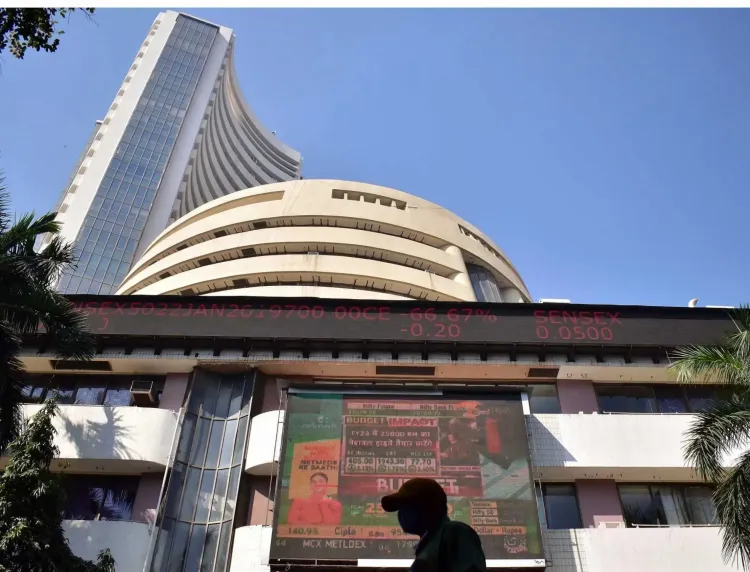Why Did the Sensex Plummet by 823 Points Amid Escalating US-Iran Tensions?

Synopsis
Key Takeaways
- Sensex dropped by 823.16 points.
- Investor sentiment impacted by US-Iran tensions.
- All sectoral indices ended lower.
- Major real estate stocks declined significantly.
- Market volatility increased.
Mumbai, June 12 (NationPress) The Indian stock markets experienced a significant downturn on Thursday following a turbulent trading session, as weak global signals and increasing tensions between the US and Iran adversely impacted investor confidence.
The Sensex fell by 823.16 points, or 1 percent, closing at 81,691.98 after reaching an intra-day low of 81,523.16.
The Nifty dropped below the crucial 25,000 mark and finished at 24,888.20, down by 253.20 points or 1.01 percent.
Among the 30 stocks in the Sensex, Tata Motors, Titan, Power Grid, Tata Steel, L&T, and Mahindra & Mahindra were the biggest losers, each declining over 2 percent.
Only Bajaj Finserv, Asian Paints, and Tech Mahindra managed to remain in positive territory.
The broader market indices also closed in the negative. The Nifty Midcap100 fell by 1.73 percent, while the Nifty Smallcap100 decreased by 1.90 percent, indicating a widespread market sell-off.
All sectoral indices ended lower, with the Nifty Realty index being the worst affected, plummeting by 2.02 percent.
Shares of major real estate firms such as Phoenix, Godrej Properties, Anant Raj, DLF, Prestige, Sobha, Brigade, and Macrotech Developers fell by up to 3 percent.
Other sectors, including energy, consumer durables, oil and gas, automobiles, PSU banks, FMCG, metals, and financial services, also observed declines of more than 1 percent each.
"The consolidation in domestic markets is evolving into a broad-based trend, now extending to large-cap stocks. Valuation concerns and rising oil prices, exacerbated by Middle East tensions, are heightening risk aversion among investors," stated Vinod Nair of Geojit Investments Limited.
He also mentioned that the US is contemplating unilateral tariff increases on several key trading partners, with a decision anticipated within the next one to two weeks, prior to an early July deadline.
Nair added that gold is witnessing a new phase of safe-haven buying amidst escalating geopolitical and economic uncertainties.
Meanwhile, market volatility surged as the India VIX, which gauges market fear and volatility, climbed by 2.54 percent to 14.01.










